EU - between the Centrifugal and Centripetal Forces
Adelina Marini, July 30, 2013
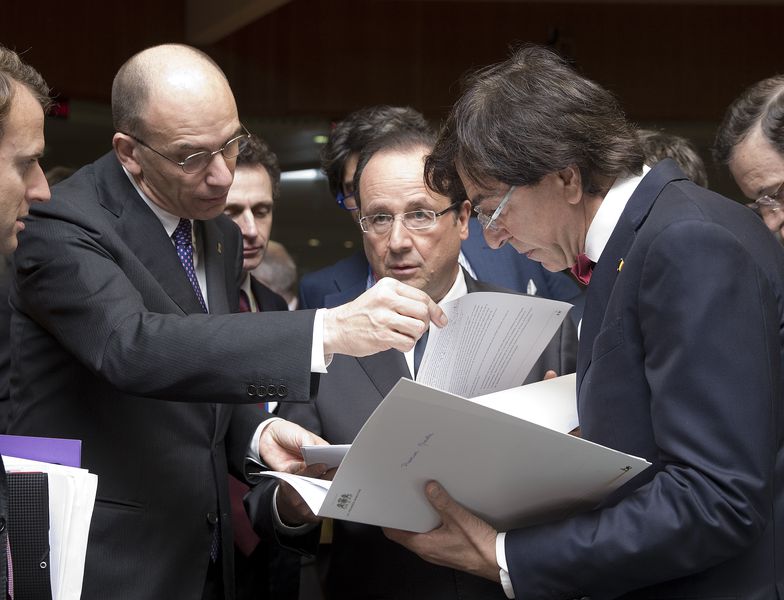 The past European political season can be remembered with the isolation of the European Commission and in particular its president - Jose Manuel Barroso, who is serving a second term after the will of the principle of the least resistance. In the past year, the former prime minister of Portugal demonstrated excessive energy and high ambitions not only for the deepening of the EU integration, with the eurozone at the epicentre, but to hold the reins of that integration in his hands. A zeal that was poured with cold water by the Franco-German political centre and also by the Dutch-British loosening actions. President Barroso hoped that the June summit in Brussels will duplicate the ambition and vision of the last year's European Council in June when the leaders of the member states decided to begin the construction of the banking union and also to be presented with ideas for the deepening of the Economic and Monetary Union (EMU), which is the eurozone.
The past European political season can be remembered with the isolation of the European Commission and in particular its president - Jose Manuel Barroso, who is serving a second term after the will of the principle of the least resistance. In the past year, the former prime minister of Portugal demonstrated excessive energy and high ambitions not only for the deepening of the EU integration, with the eurozone at the epicentre, but to hold the reins of that integration in his hands. A zeal that was poured with cold water by the Franco-German political centre and also by the Dutch-British loosening actions. President Barroso hoped that the June summit in Brussels will duplicate the ambition and vision of the last year's European Council in June when the leaders of the member states decided to begin the construction of the banking union and also to be presented with ideas for the deepening of the Economic and Monetary Union (EMU), which is the eurozone.
With the latter was tasked the moderate and agile, but in the same time unambitious president of the European Council, Herman Van Rompuy, as the leaders also assigned his associates - the other three presidents - of the Commission, the Eurogroup and the ECB. A report that became known as the document of the four presidents which euinside wrote in detail of. While Mr Rompuy was working on the report, Mr Barroso made his first statement that he intended to develop a solo career. Yet with his September address to the European Parliament about the state of the union, he stated his intentions to present concrete ideas about the deepening of the EMU, taking out of the taboo the word 'federalism' and using it with easiness. His vague ideas in September were followed by much more comprehensive work in November when the concrete blueprint of the Commission was presented. Thus Barroso outstripped the report of the four presidents.
The first cold shower was turned on during the annual taking-stock summit in December when the enthusiasm of the president of the Commission was mitigated only to be inflamed again in March when the Commission opened a "consultation" which can hardly be defined as innocent and which succeeded even to enrage the European Parliament. On March 20th, President Barroso personally presented two proposals for a consultation clarifying in details some of his ideas from November 29th. One is for the creation of a convergence and competitiveness tool and the other is for ex ante coordination of the plans for big economic reforms.
Contractual agreements and financial incentives
In fact, the first proposal is from phase one in Barroso's vision for the future of the eurozone, while the second one is from phase two. Under the mask of a consultation, with these two proposals the Commission is practically further pushing forward its own ideas about how should the euro area look like in the future. Many of the questions that were not clear in Barroso's November road map, are now getting a clearer form in the March proposals. They are about a replacement, in practise, of the bailout programmes which are currently being imposed by the economic Troika, consisting of representatives of the Commission, the European Central Bank and the International Monetary Fund, but without the organisation from Washington and its financial assistance. This completely reflects the cooling of relations between Brussels and Washington. These programmes will be replaced by contractual agreements which will set out the key measures a country will commit to undertake in strictly defined deadlines. In the second proposal, the Commission asks specific questions about how exactly the financial aid should be provided.
Like before, every member state will present its reforms plan which will be evaluated by the Commission on the basis of the existing supervision and monitoring systems. The evaluation will circulate around the expediency of the proposed measures and what side effects they could have on the member states. It will also be viewed whether they are implementable within the set deadlines and what will their impact be on the sustainability of public finances and their social impact, too. On the basis of that evaluation, the Commission will negotiate the details on the plan before sending an official proposal to the Council to approve the contractual agreement.
If an agreement is not reached between the affected country and the Commission or if the Council does not approve it, a deal will not be signed and therefore there will be no financial assistance. Key in the Commission proposal is the recommendation national consensus to be sought for the proposed reforms after the example of Portugal when the bailout programme was agreed - a consensus that seems to be cracking now in Lisbon. The capitals are expected to ensure that the national commitments for reforms will be implemented as laid out in the contractual agreements with the active participation of the national parliaments.
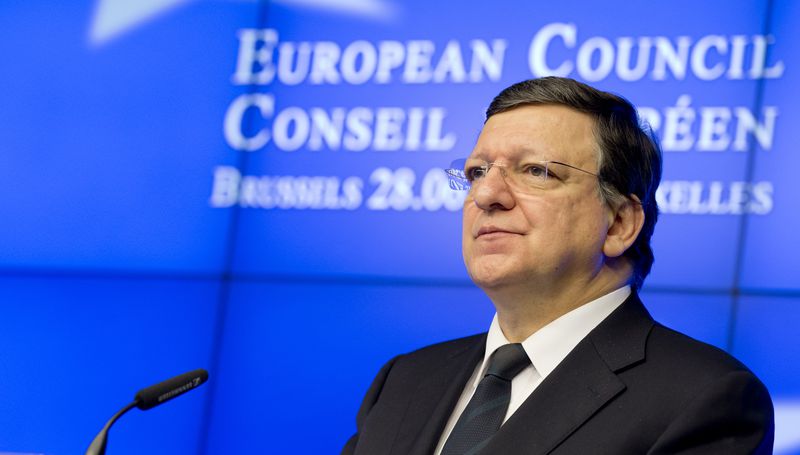 It is also recommended in the debates to be involved other interested parties at national level, depending on the proposed reforms like, for instance, the social partners. The active participation of the European Parliament is also envisaged to ensure "democratic legitimacy" at the European level. The mechanism for financial assistance to be financed by all participant countries, the Commission proposes. The EU executive refrains from pointing a certain mechanism and only outlines the options. The financing could cover all participants, to be imposed on all eurozone members no matter if they want assistance or not, to be in the form of special contributions based on the gross national income or through other financial resources. Barroso here, too, does not retreat from his initial idea the mechanism to be included in the EU budget in the form of "external dedicated revenues".
It is also recommended in the debates to be involved other interested parties at national level, depending on the proposed reforms like, for instance, the social partners. The active participation of the European Parliament is also envisaged to ensure "democratic legitimacy" at the European level. The mechanism for financial assistance to be financed by all participant countries, the Commission proposes. The EU executive refrains from pointing a certain mechanism and only outlines the options. The financing could cover all participants, to be imposed on all eurozone members no matter if they want assistance or not, to be in the form of special contributions based on the gross national income or through other financial resources. Barroso here, too, does not retreat from his initial idea the mechanism to be included in the EU budget in the form of "external dedicated revenues".
Ex ante coordination of big national economic reforms
With its second opinion, the Commission states its position that the national plans for key economic reforms should be coordinated at EU level first and then the final decision for their implementation to be taken at national level. This, the Commission believes, will guarantee that the member states do take into account the impact their decisions have on European level. The Commission believes that sufficient grounds for such a coordination provides Article 121, paragraph 1 from the Treaty of the EU, which points out that the member states can conduct their economic policies as a matter of common interest.
According to the Commission, the ex ante coordination should cover several areas which will have key importance in the European dimension. Those are trade and competitiveness; reforms of the markets of labour, goods and services; tax reforms; financial markets. The countries that have contractual agreements could be excluded from the ex ante economic coordination, the Commission proposes, but it says, though, that they could take part on a voluntary basis.
The ex ante coordination to be part of the European semester and the procedure to be as follows: the member states present their intentions about economic reforms in the Commission as it is allowed the presentation not to be bound by specific deadlines because every country has its own dynamics. It is envisaged, however, the Commission and the Council to require the member states to provide their reforms plans. After a thorough evaluation of the proposed reforms, the Commission could propose changes aimed at ensuring that the planned measures will be implemented. This is the most controversial point in the Commission communication.
Take it easy with the proposals, please!
The proposed consultation by the Commission caused a very sharp reaction from the economic committee of the European Parliament. On behalf of the members of the committee, its chairwoman Sharon Bowles (ALDE, UK) recalled that there already is "great progress" in the macroeconomic governance - the eight-pack (which unites the already famous six-pack of legislative proposals and the two-pack that complemented it, all of the enhancing the coordination and supervision at European level and whose adoption took significant legislative and intellectual energy). "I know that ‘Europe must keep pumping out ideas’ is a message which is pressed upon you. The ECON delegation heard the same from the IMF last year. The problem is that it undermines understanding of what we have already done 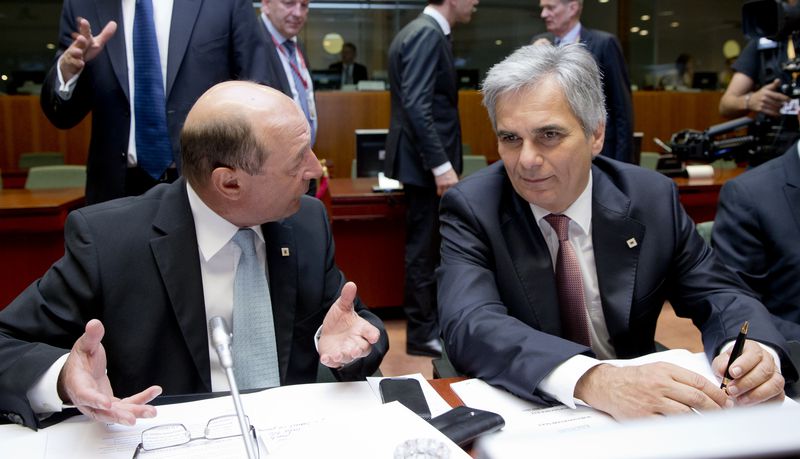 and risks sending out a message of failure. We think it is time to prioritise full implementation of the Eight Pack, before we obscure them with the next new idea...", is said in the committee opinion.
and risks sending out a message of failure. We think it is time to prioritise full implementation of the Eight Pack, before we obscure them with the next new idea...", is said in the committee opinion.
But the big strike came from Paris and Berlin literally days after the sharp reaction of the economic committee of the European Parliament. Jose Manuel Barroso's ambition months before the strategically important parliamentary elections in Germany this fall led to, at least temporary, resumption of the long-awaited coalition Merkollande. The ideas of the Commission chief proved sufficiently uniting for the otherwise quite cool relations between Paris and Berlin between which there are often sparks. At a special meeting, Chancellor Merkel and President Hollande came up with a broad document with the challenging title "France and Germany - together for a strong Europe of stability and growth". In spite of the innocence of the title, it unequivocally says "France and Germany together against Barroso".
The tone of the document aims to leave the reader with no doubt at all who pulls the strings in the EU. It explicitly points out which are the priorities for the Union and those are the policy of small steps in the construction of the banking union. The last year we had a supervisory mechanism, this year we will have a mechanism for bank resolution. According to the Merkollande duo, the establishment of a single resolution mechanism for the countries that participate in the supervisory mechanism should be within the framework of the existing legislation and be based upon the following principles: a single resolution board, comprising of representatives of the national resolution authorities; the mechanism to be financed by contributions from the financial sector, with the possibility the eurozone rescue fund to be involved, too, to play the role of an additional financial guarantor; it is also suggested to consider the option the rescue fund (ESM) and the resolution mechanism to be merged. A proposal in that spirit the Commission made in the beginning of July, but definitely in contrast with Germany's vision about who should take the decisions.
In terms of economic policies at the euro area level, Angela Merkel and Francois Hollande directly respond to the European Commission's questions, saying that in order to have strong coordination of the economic policies it is first needed to develop a set of indicators that will be able to make a commonly accepted diagnosis of the eurozone and of all the members that share the common currency. These indicators should be able to identify the weaknesses and vulnerabilities of the economy at large, but also of the markets of goods, labour and services. Merkollande agree with the Commission that the areas of common coordination should be the labour markets; unemployment and social inclusion; but also pension policies; product markets; common taxation; efficiency of the public sector; education systems.
Regarding the contractual agreements, Hollande and Merkel are firm that the concept of these agreements needs to be defined more specifically first, taking into account the specific situation in every member state. But leading in this will be the member states, not the Commission. France and Germany are not against the creation of a new system for "limited and conditional financial assistance" for the euro area, but any new enhancement of the eurozone should be left for after the European elections next year when the European institutions will have new presidents. Among the other ideas the two countries offer for consideration are more frequent eurozone summits; appointment of a permanent Eurogroup chief; building of separate structures within the European Parliament, especially for the eurozone to ensure "adequate democratic control and legitimacy" of the decision-making process.
Cold shower came from The Hague too
A month later came a sharp response from The Netherlands which, apparently, has officially joined the UK's camp demanding a looser union and more "market". After a comprehensive assessment of the European legislation, the Dutch government came up with a huge document which contains nine recommendations and 54 points of action on specific issues. The recommendations are in the edifying tone, recalling how far the European Commission's powers should go. "If the Treaties do not give the EU competence in a specific policy area and the Commission thus cannot propose legislation, it should in  principle also refrain from issuing non-binding communications or recommendations or taking an activist approach to that policy area in some other way", says one of The Netherlands's recommendations.
principle also refrain from issuing non-binding communications or recommendations or taking an activist approach to that policy area in some other way", says one of The Netherlands's recommendations.
Mark Rutte's government also recommends the Commission to refrain from initiatives related to potential changes in the treaties. In the ninth recommendation it is pointed out that the new Commission, which is expected to take over after the 2014 elections, provides an opportunity to make a review of the European priorities. It is also firmly called for more restraint in the common European actions in the areas of law of criminal procedure, direct taxation and social security systems, although it is explicitly stated that The Netherlands will not strive for opt-outs. With this document, the government in The Hague states that it will strive for a more modest, more sober, but more efficient EU. In 54 points, the Dutch cabinet outlines its vision about which should the priorities of the EU be - they range from the legislation on the statute and funding of the European political parties, pass through the size of the wages of EU officials and reach out to the financial transaction tax, which The Netherlands firmly objects.
The answer of the Dutch looks more like a no-list than a list of specific answers to the Commission's questions, but nonetheless the issue of the creation of a fund for absorption of shocks is touched upon. The Netherlands is against the idea. "Economic stabilisation can best take place at national level, within the limits of the agreements in the Stability and Growth Pact. The proposed eurozone mechanism could have the adverse effect of allowing countries to shift the risks of their inadequate reforms to EU level", is The Netherlands's answer.
Tomorrow begins in October
The outcome of the June 27-28 summit shows that the Franco-German vision has definitely prevailed, but the timeline for the bolder reforms is left for after the elections in Germany in the end of September. In their conclusions, the leaders have written down that they will hold close consultations and the issue will again be reviewed in October when will the set of indicators be discussed and the areas the ex ante coordination will cover. And in December will be taken the final decision about how 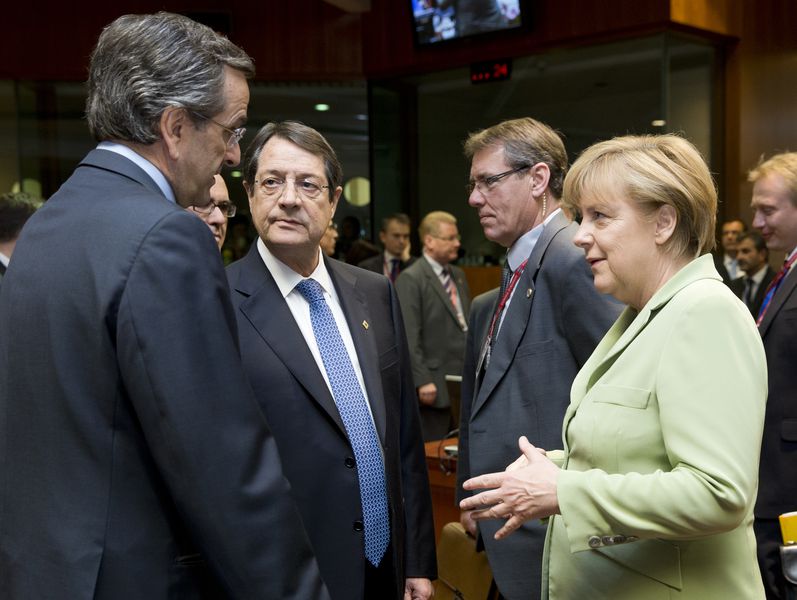 and where to go. In the meantime, the social dimension fo the EMU will be enhanced for which the Commission is expected to present concrete proposals this autumn.
and where to go. In the meantime, the social dimension fo the EMU will be enhanced for which the Commission is expected to present concrete proposals this autumn.
In the presentation of the European President Herman Van Rompuy, presented at the summit, most of the points in the Commission communication are taken into account, but the time to begin work in essence is October, meaning - after the elections in Germany. From the statement of the European Commission President after the Council, however, it can be judged that in spite of the cool welcoming of his ideas he will not give up. The question is whether the Council will continue to pass censure on him until the European elections next year when for his post will be proposed candidates by the European political parties, but the approval will come from the leaders of the member states?
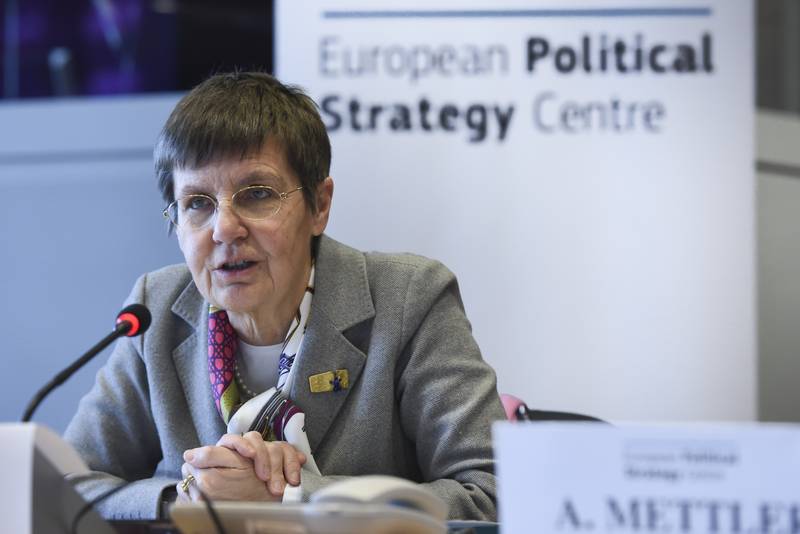 Elke Koenig | © European Commission
Elke Koenig | © European Commission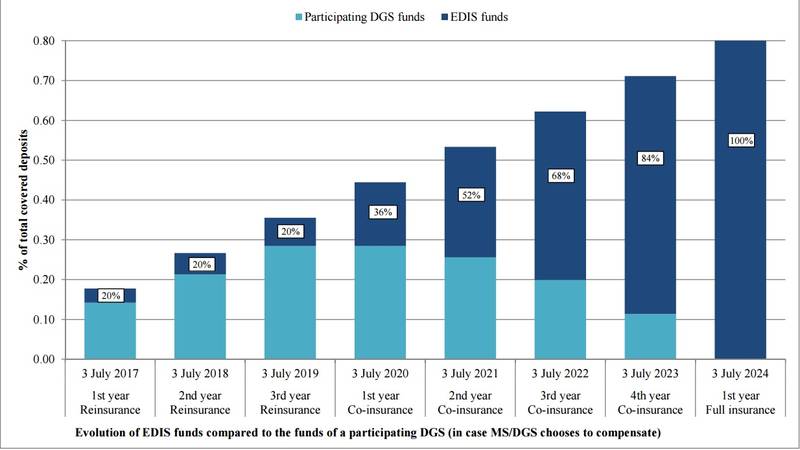 | © European Commission
| © European Commission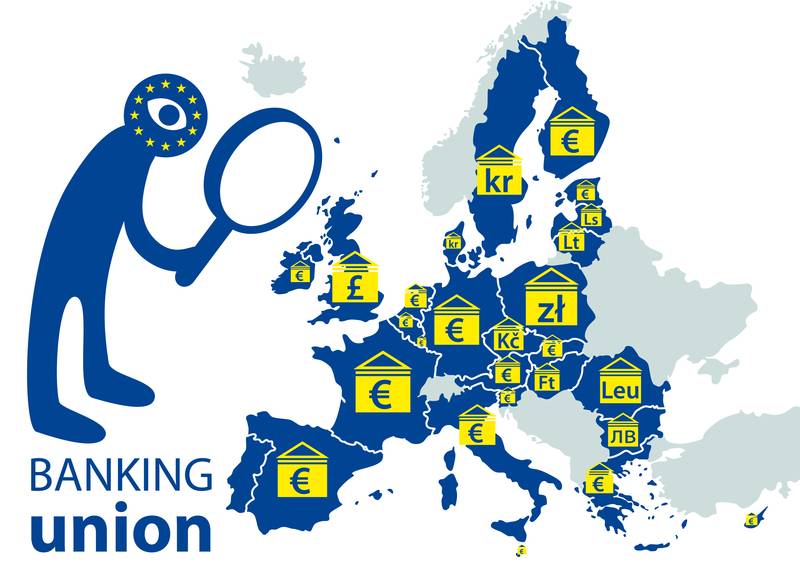 | © European Parliament
| © European Parliament